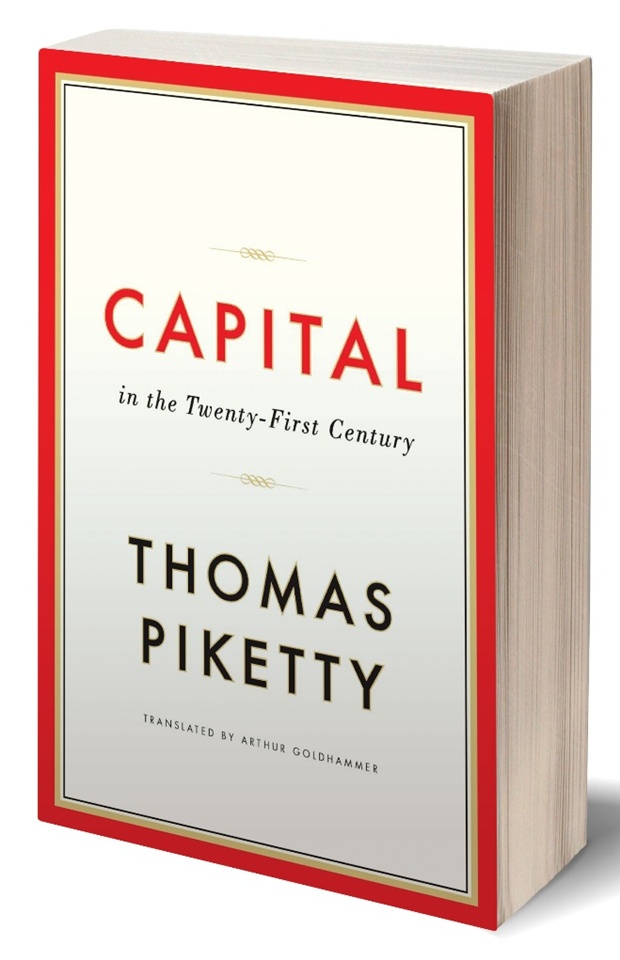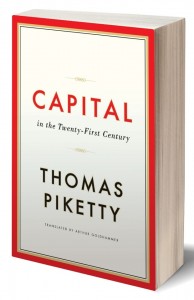Capital, the 700 page book by French Economist Thomas Piketty published in 2013 has been described as a ‘surprise bestseller’. It was first published in French and then English –which became a bestseller and is talking the world of Economics by storm. The book’s primary focus is wealth and income inequality in Europe and the United States since the 18th century.
The central theory of the book is that when the rate of return on capital (r) > rate of economic growth (g) over a long period of time the result obtained is concentration of wealth. The unequal distribution of wealth causes economic stability. His solution is a global tax on wealth.
The book is based on more than a decade’s worth of research. It traces the evolution of social and economic inequality since the beginning of industrialisation. According to him inequality was soaring in the 18th and 19th centuries in Western Europe. According to him, “Private wealth dwarfed national income” and was concentrated in the hand of the rich families. This continued even though the rampant growth of industrialisation led to the slow rise of wages. It was only after the first and second world war that things changed. With the advent of inflation, high taxes, bankruptcies etc wealth began to shrink drastically. This led to a period where in wealth and incomes were distributed in an egalitarian fashion. However, these changes have faded and wealth is now reasserting itself.
Thomas derives from history the theory, r>g, other things being equal, faster economic growth diminished the importance of wealth where as sluggish economic growth will increase it. He says that there are no ‘natural’ forces that move against the concentration of wealth. It is essential rapid bursts of economic growth through technological advancement or government intervention.
In today’s world inequality is on the rise in all spheres, especially social and economic inequality. Piketty essentially is saying that we are heading backwards. Signs suggest we are moving back to the same pattern of soaring inequality like in the 18th and 19th centuries.
Piketty solution –‘confiscatory’ global tax on inherited wealth. This makes even the most radical economists sound rational. He calls for a 80% tax on incomes above $500,00 (p.a) in the United States. Piketty’s theory implies that if the underlying cause of the 2008 bank catastrophe was falling incomes and rising financial wealth then the crisis was in reality a product of the system working normally.
The book has drawn heavy criticism. Some feel that it may not be wise to think that the future will look like the past. Others feel that his policy recommendations are more idealistic than economically driven. Whether good or bad, Capital has certainly caused a stir in the world of economics.





12 Comments. Leave new
Radical one!
Well written.
nice
Well crafted!
good article!
Informative one.
well researched.. great work!
The rich are getting richer and the poor are getting poorer
Amazing article
Very good article!
Nicely written:;)
Very well Wriiten 😀